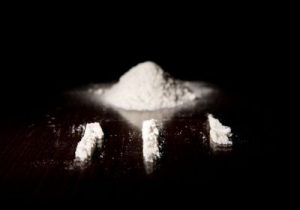Cocaine Addiction & Its Side Effect
Cocaine is a synthetic narcotic alkaloid and very powerful stimulant drug taken primarily from the leaves of two cocoa species, Erythroxylum monnieri and Erythroxylum acrometosa. It is usually used as a central nervous stimulant and recreational substance. The effects of cocaine include the sensations of euphoria, physical weakness and sexual excitement.
Cocaine achieves its cocaine effects by causing release of the chemical into the blood stream through the skin pore. The levels of the chemical may increase in the blood through a break in the skin barrier and enter the blood stream, where it is carried by oxygenated blood to the heart. This chemical is then transported through the blood to all parts of the body via the blood circulation. The major transport route is through the vesicle that contains a ring-shape opening. Cocaine affects the heart, when it reaches the pulmonary fibres causing a reduction in contractility of the muscle that circulates the blood.
Cocaine has numerous other effects on the body besides its direct action on the brain. It also produces a psychological effect in users which include euphoria, confidence, alertness and stimulation. Although cocaine itself does not have any effect on blood pressure, high doses can cause hypertension in certain people. As a result of this, local anesthetic or sedative cocaine has been used in the treatment of anxiety and sleeping disorders for many years.

Cocaine Addiction
Some of the most common adverse reactions from cocaine use include cardiovascular problems such as palpitations, angina and coronary heart disease. In extremely rare cases, cocaine use can cause a heart attack in some individuals, cardiovascular complications such as myocardial infarction, ventricular fibrillation and sudden cardiac death. The most severe side effects are psychosis, depression and withdrawal syndrome. If these symptoms persist for over two weeks, then a patient should seek medical help.
As well as producing euphoric effects, cocaine also produces a loss of sensibility, decreased sexual desires, lack of attention and sleepiness. When taken in high doses, cocaine reduces the levels of dopamine in the brain; thereby resulting in an altered state of consciousness. Dopamine is the primary chemical in the brain that controls feelings of euphoria, calmness and affection. The levels of dopamine released into the brain depend largely on the amount of sugar present in the blood. As cocaine reduces the levels of dopamine in the brain, feelings of euphoria are lessened and the patient becomes incapable of keeping their feelings under control. When the drug is stopped, the effect of cocaine in the brain is reversed, resulting in a state of constant euphoria.
It has been proven that co-occurring with other forms of drug abuse greatly increases the risk of cocaine addiction. It has also been found that addicts tend to use cocaine in large amounts to achieve the same level of euphoria they experienced during the rush. Treatment programs based on the twelve step program of recovery from alcohol have proved highly effective in the treatment of cocaine addiction.